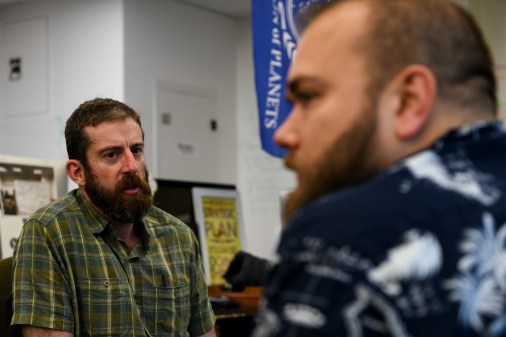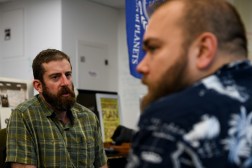The pandemic accelerated digital transformation in Washington — what’s next?

For federal agencies, the COVID-19 pandemic served as a springboard opportunity to jump-start digital transformation — either scaling the transformative efforts they already had underway or rapidly pivoting during the crisis to innovate, catch up and maintain operations.
Now, as the world returns to some semblance of normalcy and agencies look to operate beyond the pandemic, the key will be to sustain that innovation and transformation at scale by creating a culture that fully embraces the shifts that occurred over the past year, said Carl De Groote, area vice president of U.S. federal for Cisco.
Ahead of Cisco’s FedFWD Summit on Thursday, De Groote spoke with FedScoop about what federal agencies should be focusing on in the post-pandemic time ahead and how they can double down and emerge from this tumultuous period as truly digital organizations.
Cisco is a big believer in the power of the platform to drive that transformation.
“Whether it be collaboration to bring expertise together with a citizen that has questions or bring the military together to collaborate around their high-value problem sets to protect our nation, whether it’s helping an analyst and national security find that needle in a haystack, platforms allow technologists and CIOs to extend those capabilities into workflows and processes, to take advantage of quicker access to data, converting it to information,” De Groote said.
Platforms are all about being “extensible, rapidly deployable, rapidly usable, and able to produce rapid results as it relates to work,” he said.
Cisco’s Webex is one of those platforms that came to the rescue during the pandemic and will likely play a key role across the federal government as agencies continue to work in a hybrid format split between in-office activity and personnel working remotely.
For Congress, De Groote said, Webex allowed the House and Senate to continue conducting hearings and writing legislation when it became unsafe to do so in-person.
“It extended the capabilities for the green and red light to be able to pass time back and forth between colleagues, to bring together all of our lawmakers, congressmen and women and senators to be able to be present, to take on topics, to learn, to vote, being able to poll and conduct things that they used to in a physical state rely on, to bring that experience to an online platform and mechanism,” De Groote said.
That’s key for the military as well, he said. “If you think about command and control in a secure environment, how do they do that successfully where they can rely on the fact that collaboration is secure? That the content they’re sharing remains protected? So, now it’s really looking at the different problem sets, the different processes and keep on extending and driving that innovation.”
And that security of the platform, it can’t be thought-about after-the-fact, De Groote said. “It’s got to be integrated, it’s got to be built into the design so that as our customers experience our platforms and conduct their work, they have the confidence that it’s going to be secure all the time.”
De Groote hopes that attendees of Thursday’s FedFWD Summit will come away with “the art of what’s possible,” he said. “How can technology serve the government and its mission, and understand that it’s not only an opportunity to deploy technology and platforms, it’s also the opportunity to reshape policy so that we can administer and deploy new capabilities and embrace change.”




